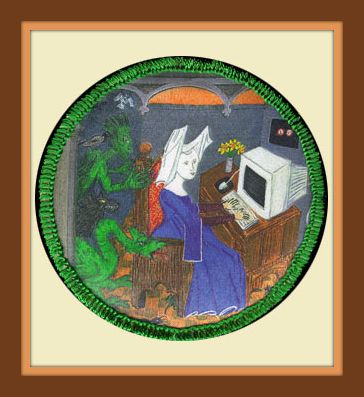 Kristof and WuDunn travel through Asia and Africa, meeting women, listening to their stories, watching them deal with terrible plights, and occasionally seeing resilience and hope shine through their tragedy. By interspersing the personal stories of these women with statistics, they have written Half the Sky, a compelling book that urges the reader to consider the high costs of continued discrimination, neglect, and abuse to women worldwide. Their intent is to move their audience beyond their comfortable armchair, to a world almost unknown in a Western country, to see and understand, and then to act--to do something to make the world a better place for women worldwide.
Kristof and WuDunn travel through Asia and Africa, meeting women, listening to their stories, watching them deal with terrible plights, and occasionally seeing resilience and hope shine through their tragedy. By interspersing the personal stories of these women with statistics, they have written Half the Sky, a compelling book that urges the reader to consider the high costs of continued discrimination, neglect, and abuse to women worldwide. Their intent is to move their audience beyond their comfortable armchair, to a world almost unknown in a Western country, to see and understand, and then to act--to do something to make the world a better place for women worldwide.
They cover a range of topics, including forced prostitution, honor killings, the prevalence of maternal mortality (the image of a midwife jumping on the belly of a laboring women still haunts me), and the promise of education and microlending to poor women and the difficulty at times in accessing them.
One interesting issue they bring up is the way that traditions oppressive to girls are maintained by women themselves--for example, genital mutilation. It is the mothers that force their daughters through this ritual in order to protect them from promescuity and preserve the family name. Zoya, another women, whose smile shines out from the pages of the book, claims that husband beating is perfectly legitimate when "the wife in not taking care of her husband or is not obedient." She is one that has left her husband and her in-laws--she is one that has worked to liberate herself from a terrible situation, but still she cannot fathom that a husband does not have the right to beat his wife when she will not obey.
Kristof and WuDunn stateWomen themselves absorb and transmit misogynistic values, just as men do. This is not a tidy world of tyrannical men and victimized women, but a messier realm of oppressive social customs adhered to by men and women alike.
As documented elsewhere, I saw again the reduction of women to their reproductive function, resulting in the control of parents and husbands over their daughters and wives: the hymen checks before marriage, the honor induced suicides by a woman after she was raped, the raping of women from opposing tribes during war as a way to humiliate and intimidate the men.
Many of their stories of hope that Kristof and WuDunn share come from local women who have successfully overcome a difficult situation, and have now risen to help other girls and women--including starting microlending programs, finding ways to keep girls in school, helping girls start new lives after escaping from forced prostitution, and helping women to have save and healthy pregnancies and deliveries. Kristof and WuDunn believe that unleashing girls and women from the obstacles and traditions that hold them back is not only a moral necessity, but an economic one as well that will benefit families, towns, countries, and even the global economy.
I am motivated to talk with my kids more about the kinds of issues that women face throughout the world. I am also going to sit down with MJ and open a Kiva account with her (it's been on my list of good intentions for a long time now) and let her pick a women she would like to loan money to. And I'm going to comb through the resources on their website and find something to personally commit to.
Thursday, February 04, 2010
Half the Sky
Labels:
Feminism,
Off the Stacks,
Women Unbound
Subscribe to:
Post Comments (Atom)

1 comment:
Good for you! When you decide what you'll do, I hope you'll tell us about it. I've finished reading this book, but haven't yet reviewed it. But maybe you'd like to read my answers to the questions on feminism I answered for Women Unbound:
http://bonniesbooks.blogspot.com/2009/11/women-unbound-meme-to-start-challenge.html
Post a Comment